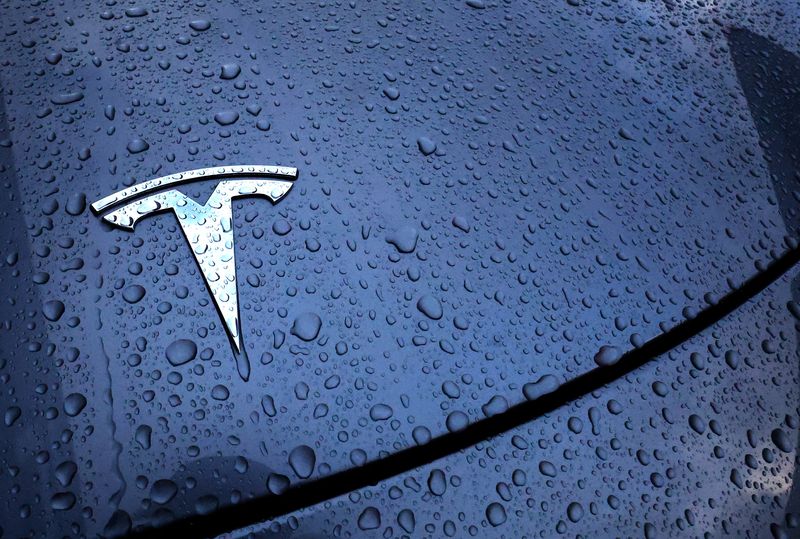Musk to face questions on Tesla's robotaxi bets on results day
By Akash Sriram and Abhirup Roy
(Reuters) - Tesla (NASDAQ:TSLA )'s investors and analysts will get a chance to grill CEO Elon Musk on his robotaxi plans on Wednesday when the electric automaker reports its quarterly results, after a much-hyped unveil this month that lacked key details and slammed shares.
Musk's roughly 20-minute introduction to the self-driving vehicle, which is expected to underpin Tesla's future, offered no time for questions.
The disappointing event is more a reason why investors would want to know whether the automaker's main business of selling cars is improving.
Tesla is expected to report that third-quarter profit margin on auto sales fell, squeezed by lucrative incentives to lure electric vehicle buyers.
A first-ever drop in annual deliveries is also likely as demand for its aging lineup faces competition from cheaper EVs in China as well as traditional U.S. automakers with fresh electric models.
Here's what Wall Street is looking at:
ROBOTAXI DETAILS AND FULL SELF-DRIVING
A lot of Tesla's $700 billion valuation is tied to Musk's promises that its Autopilot software will form the basis of its robotaxi business. Analysts are likely to head into the post-earnings call with questions on production timelines and sales strategy.
Musk said the robotaxi would go into production in 2026 and cost less than $30,000 to buy, adding that unsupervised operation of Tesla's Full Self-Drive software would start next year in California and Texas.
In a sign of concern for the autonomous software plan, the U.S. auto safety regulator on Friday opened an investigation into 2.4 million Tesla vehicles equipped with FSD software after four reported collisions, including a fatal crash in 2023.
Tesla cars drove more than 1.6 billion miles using FSD, including the latest version of the advanced driver assistance software, Tesla had said at the end of the second quarter. It is offering interest-free financing for those who buy FSD during their purchase of Model 3 or Model Y cars.
MARGIN
Some Wall Street analysts, however, have shifted their focus from the Cybercab event. "With Tesla's Robotaxi Day passed, we believe the focus for Tesla at least for now shifts back to fundamentals," Barclays analysts said in a note last week.
Wall Street expects Tesla to report 14.9% automotive gross margin, excluding regulatory credits, for the three-month period ended Sept. 30, according to 23 analysts polled by Visible Alpha. In the second quarter, Tesla recorded 14.6%.
The company has cut prices to stimulate demand amid high interest rates, but with limited success. It has offered incentives and low-cost financing options, especially in China.
Analysts expect this to hurt its margin, a metric in which Tesla long had an edge over traditional automakers.
ANNUAL DELIVERIES
Tesla's challenge is to beat last year's delivery numbers, and it is expected to update its annual forecast.
Unless Tesla hands over more than 516,000 vehicles in the fourth quarter - typically the strongest period for U.S. car sales - it is likely to post a slight drop in annual deliveries.
Deliveries could slip 0.3% to 1.8 million units this year, according to 18 analysts polled by LSEG.
"I think Tesla will get close to last year's delivery total, but not quite achieve it," said Alexander Johns, who owns Tesla shares.
CHINA
The company faces strong competition in China from domestic players such as BYD (SZ:002594 ), which offer several cheaper models.
Still, Tesla's sales in China rose 66% to 72,000 units in September, marking its best month this year. Its third-quarter sales in the country were up 12%, helped by financing deals and trade-in subsidies by local governments.
The trend could continue.
"With some wind in its sails it wouldn't be a surprise to see Tesla beat last year's China sales record" in the fourth quarter, said Matt Britzman, senior equity analyst at Hargreaves Lansdown.
Source: Investing.com
